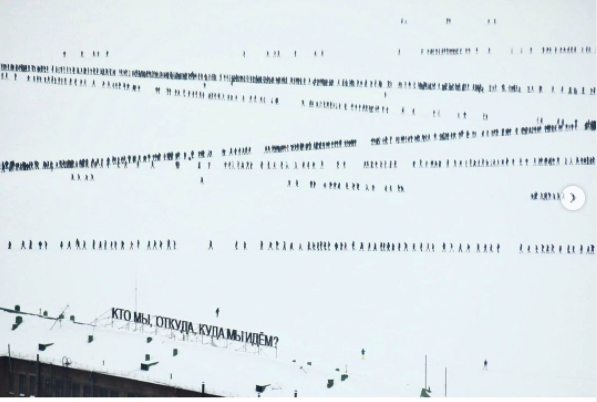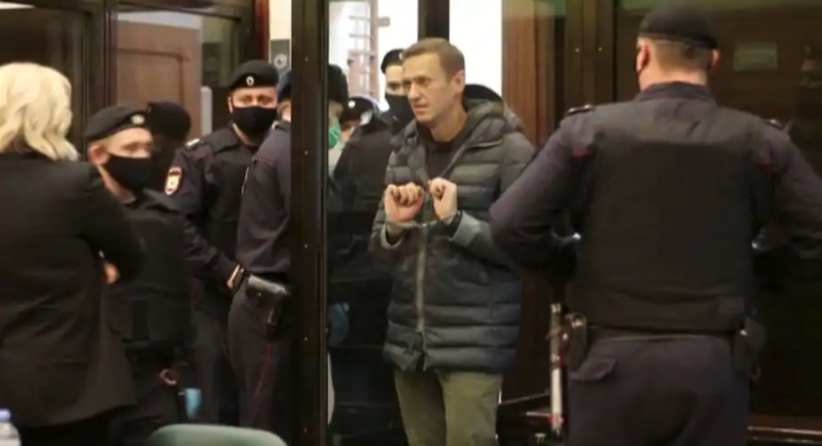The Federal Penitentiary Service has announced the death of Alexei. However, it remains crucial to await confirmation from his legal team and family. So far, here are my reflections on the matter:
First, politically speaking, it's a difficult truth, but Navalny's decision to return to Russia significantly heightened the risk of a tragic end in prison. Renowned for their austere conditions, Russian penal institutions inflict profound and lasting physical and psychological harm on inmates, effectively maiming their lives and rendering many individuals permanently disabled. Navalny was already vulnerable due to his 2020 poisoning. The harsh detention conditions and cruel treatment he received underscore a deliberate indifference, if not consent, from Putin and the authorities for a dire outcome, employing imprisonment in its most severe form.
First, politically speaking, it's a difficult truth, but Navalny's decision to return to Russia significantly heightened the risk of a tragic end in prison. Renowned for their austere conditions, Russian penal institutions inflict profound and lasting physical and psychological harm on inmates, effectively maiming their lives and rendering many individuals permanently disabled. Navalny was already vulnerable due to his 2020 poisoning. The harsh detention conditions and cruel treatment he received underscore a deliberate indifference, if not consent, from Putin and the authorities for a dire outcome, employing imprisonment in its most severe form.
Second, following Navalny's return and subsequent imprisonment, along with the complete disbandment of the FBK and the non-systemic opposition, especially after the commencement of the war, there ceased to be any advocates for him within the system. This was not about the possibility of commuting his sentence—as it was widely understood that Navalny would remain incarcerated as long as Putin was in power—but rather about preventing his death and the potential political fallout. Demonstrating compassion towards Navalny was perceived as too perilous and out of sync with the prevailing political climate. Consequently, the deterioration of his living conditions and the systematic undermining of his health went unchecked. Today, there is no grounds to believe that anyone within the system would stand up for him.
Third, I maintain that Putin did not fear Navalny, despite some opposing views, which I do respect. Putin's disdainful perception of Navalny as a minor criminal unworthy of respect and as an adversary manipulated by the West to undermine national and state interests dictated a merciless systemic response, which “programmed” the tragic end. According to my knowledge, Putin admitted that cruel conditions could be fatal for Navalny and dismissed it as a problem. But Putin will have to deal with the consequences of Navalny’s death.
Fourth – and this is one of the main consequences of such – the tragedy has happened against the backdrop of presidential elections. And Putin does fear external interference. He sincerely believes that the West would and will use the moment to undermine the stability and to afflict political damage to his campaign. That will push him to take an even more hawkish, more repressive approach to any hostile manifestation, which he may link to external attempts to interfere. This may specifically create a more restrictive approach to the media and social networks. A lot will depend on whether the regime overreacts, which may become an issue in and of itself.
Fifth, Navalny emerged as a seminal and historical figure, embodying an unyielding anti-Putin political stance and representing the most substantial alternative to Putin's regime since 2000. His unmatched recognition, significance to the elites, and involvement in domestic politics distinguished him from any other opposition figure, cementing his status as an outstanding politician. And this creates a significant political problem for the regime –– they will have to deal with Navalny’s legacy. I have no doubt that very soon we’ll witness a significant wave of anti-Navalny repressions, raids after indignations in social networks, criminal cases and arrests.
• • •
Missing some Tweet in this thread? You can try to
force a refresh







